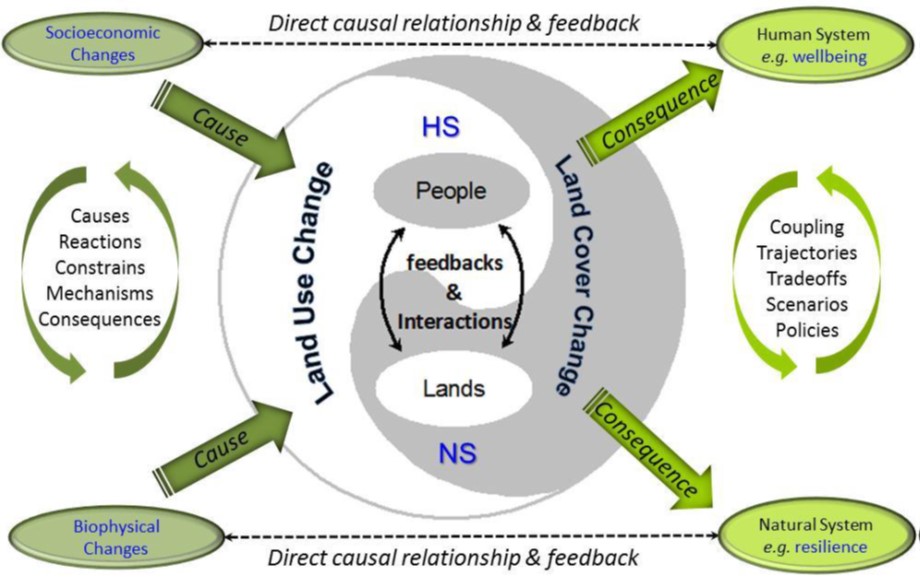Physical Geography: Climate Change and Impacts on Ecosystems
12:30 - 13:45, Mon & Wed
This class will provide a forum to examine the foundation, evidences and impacts of global climate and climate changes. An emphesis will be placed on its effects on and the feedback roles of terrestrial ecosystems.
This goal will be achieved through reviews of the UpToDate literature, term papers, (guest) lectures, and hands-on homework.
Reading Materials
IPCC Reports (1993-2022)
Biophysical Models and Applications in Ecosystem Analysis
3 Credits, 120 Geography Building
This class will provide a forum to examine the broad range of approaches being used by scientists to address human-environment systems, and the integration of social and natural sciences. We will look at expert panel assessment of what the urgent questions are driving research at this time (and how this has changed over time), and how a range of teams are approaching the challenge of coupling the natural and social systems to address issues such as global change, climate change, food security, land use/cover, and sustainability. This goal will be achieved through reviews of the UpToDate literature, term papers, (guest) lectures, and hands-on homework.

Major Topics:

Our objective is to stay up-to-date with the latest scientific endeavors in the frontiers in geospatial science through hands-on research experience. Through team exercises, students will experience a complete course of developing scientific questions and hypothesis, performing the corresponding data analysis, and constructing a manuscript for publication. For Spring 2018, we will focus on developing a team-manuscript that will examine the contributions of landscape heterogeneity to ecosystem carbon/water/energy fluxes. This will be done by integrating the long term flux measurements of the FLUXNET towers and various geospatial data (e.g., high resolution DEM, land cover, LAI, etc. etc.). The instructors will work closely with the students on the study design, data access/analysis, illustrations, and writing. We expect this student-lead manuscript will be completed and submitted by the end of Spring Term (2018). An example is provided in the following diagram.
Gain hands-on experience in sensor and weather tower construction and learn how to collect carbon flux data, process data from popular data-loggers, as well as learn the fundamental terminology, concepts, principles, processes and applications in natural science. The eddy-covariance method will be introduced and students will contruct their own towers as their term project. Additional methods will also be covered, including biophysical models and how to scale up in situ measurements usting satellite data.

This team-taught seminar class provides a forum to examine the broad range of approaches being used by scientists to address human-environment, coupled systems, and the integration of social and natural sciences in environmental research. We look at expert panel assessment of what the urgent questions are driving research at this time (and how this has changed over time), and how a range of teams are approaching the challenge of coupling the natural and social systems to address issues such as global change, climate change, food security, land use/cover, and sustainability.
This course presents cross-disciplinary concepts in the application of principles and theory to the study and maintenance of diversity in temperate and tropical systems. The course will include lectures, classroom discussions, readings, video, and field excursions.